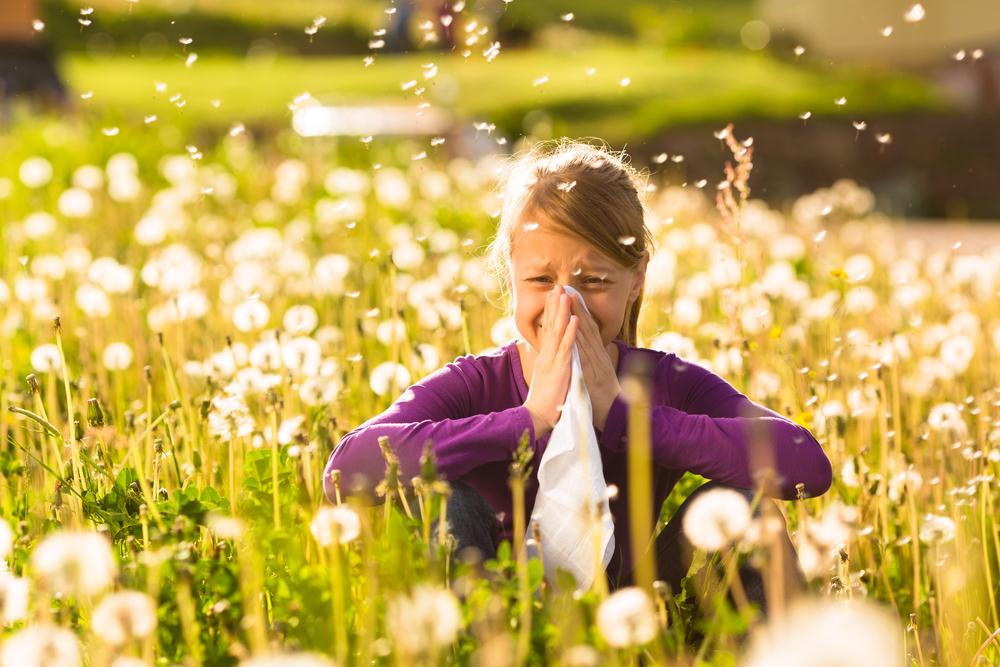Sneezing. Watery eyes. Stuffy nose. These could just be symptoms of a cold or these could be signs that your child has allergies. If you notice that your child’s symptoms flare-up during certain times of the year then this could definitely be a sign of seasonal allergies. Unfortunately, allergies can impact everything from performance in school to participating in outdoor activities such as school sports. If you  suspect that your child may have allergies it’s important to talk with your pediatrician.
suspect that your child may have allergies it’s important to talk with your pediatrician.
Childhood Allergy Symptoms
Allergy symptoms can also seem a lot like a cold or other upper respiratory problems. Common symptoms associated with allergies include:
- Watery, red, and itchy eyes
- Itchy nose
- Dark circles under the eyes or puffy eyelids
- Ear pain and chronic ear problems
- Nasal congestion
- Facial pain and pressure
- Headaches
- Sneezing
- Persistent cough
- Chest tightness
So, how can you tell that your child is dealing with allergies and not an infection? Some telltale signs include itchy eyes and nose, which are classic signs of allergies. If your child has a fever this is usually a sign of an infection and not allergies. Unlike a cold, allergy symptoms can last for weeks. You may also notice that your child’s symptoms come and go, appearing more often during the spring and fall months. Again, this is a trademark of childhood allergies.
Treating Childhood Allergy
There are many ways in which a pediatrician can help your child manage their allergy symptoms, and the treatments that are recommended will depend on the type and severity of your child’s symptoms. Most treatment plans include a variety of lifestyle changes and medication. Children with minor symptoms may find relief through over-the-counter antihistamines and decongestants, while other children may require a prescription-strength allergy medication to tackle more moderate to severe symptoms.
Lifestyle modifications may include using a dehumidifier in your child’s bedroom, wearing glasses instead of contacts during allergy seasons, bathing immediately after being outdoors, limiting outdoor activities during high pollen counts, and keeping pets out of bedrooms (if your child suffers from pet dander allergies).
For severe or unresponsive allergies, your pediatrician may recommend immunotherapy, or allergy shots. Allergy shots may be a good option for your child when other treatment options and medications have not been successful.
Are your child’s allergy symptoms impacting their daily routine? If so, our pediatricians can help them manage their symptoms so they can get back to enjoying days on the playground and time spent with family.

